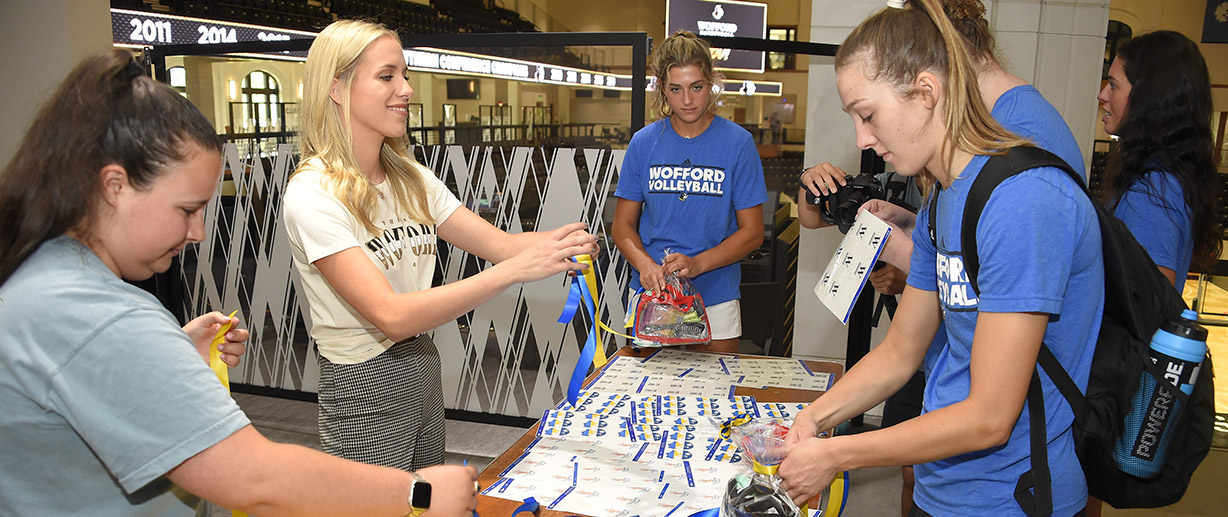When Gracie Hicks ’23 saw the images of women and children fleeing Ukraine with nothing but the clothes on their backs, she knew she wanted to do something to help them.
Hicks, a Wofford College psychology major from Murrells Inlet, South Carolina, had a nonprofit, Helping Hands Heal Families, and a project in mind. She just needed people to help make it happen.
The Wofford volleyball team, meanwhile, was looking for a project to tackle. COVID-19 had stymied the players’ ability to do a hands-on community service project the past two years, and they were ready to get back in the game.
In the middle was the Rev. Dr. Ron Robinson ’78, Perkins-Prothro Chaplain and Professor of Religion. He brought the two sides together.
On April 29, Hicks and the volleyball team packed personal hygiene kits to ship to Ukrainian refugees in Poland.
“I saw their stories, saw them being forced out of their country, and I was heartbroken,” says Hicks. “I felt compelled to take action.”
Hicks started Helping Hands Heal Families when she was 13 years old after suffering a traumatic injury that left her right arm paralyzed for nearly three years. The nonprofit provided hygiene kits for families who had loved ones facing lengthy hospitalizations.
Head volleyball coach Lynze Roos says the team always enjoyed the program’s community service component, such as going into area schools and reading to students. But the pandemic limited those opportunities, and they jumped at the chance to do a hands-on project again. The fact that it would benefit families fleeing from Russia’s invasion of Ukraine added to the appeal.
“One thing about Wofford students is that they recognize they’re part of a global community,” says Roos. “It’s not just Spartanburg, South Carolina. There’s so much more to experience, and world events matter to them. Also, the volleyball community is so small that some of our players have played against people from Eastern Europe. So, it’s not a world away, even though it is.”
Robinson says bringing Hicks and the team together was a perfect match. He says several alumni heard about the project and donated to help purchase supplies.
“People want to have a connection with what’s going on,” he says. “They want to feel like they’re doing something, even if it’s something small. And when we’re doing something for others, that’s when we’re at our best. I think that’s what this is about.”
